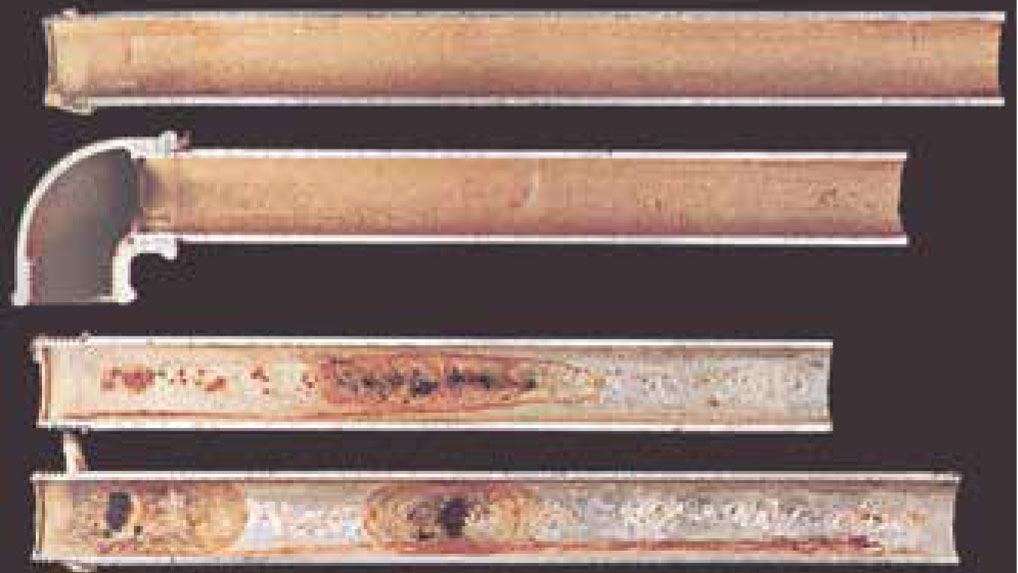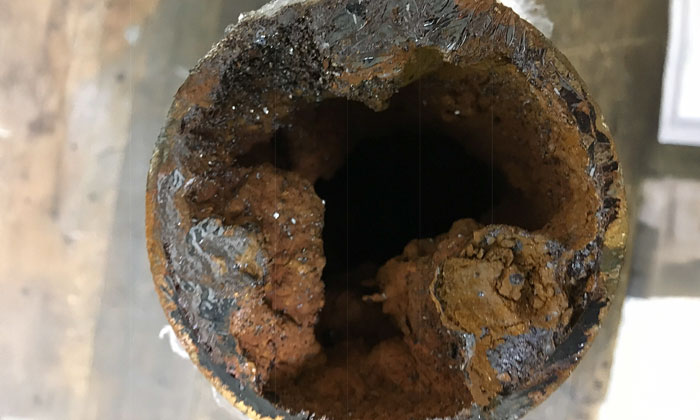
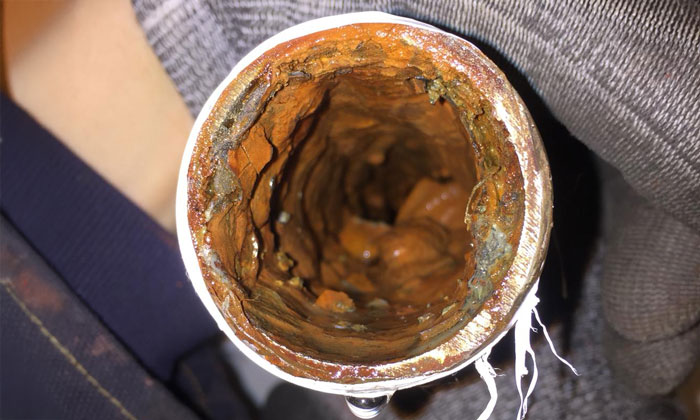
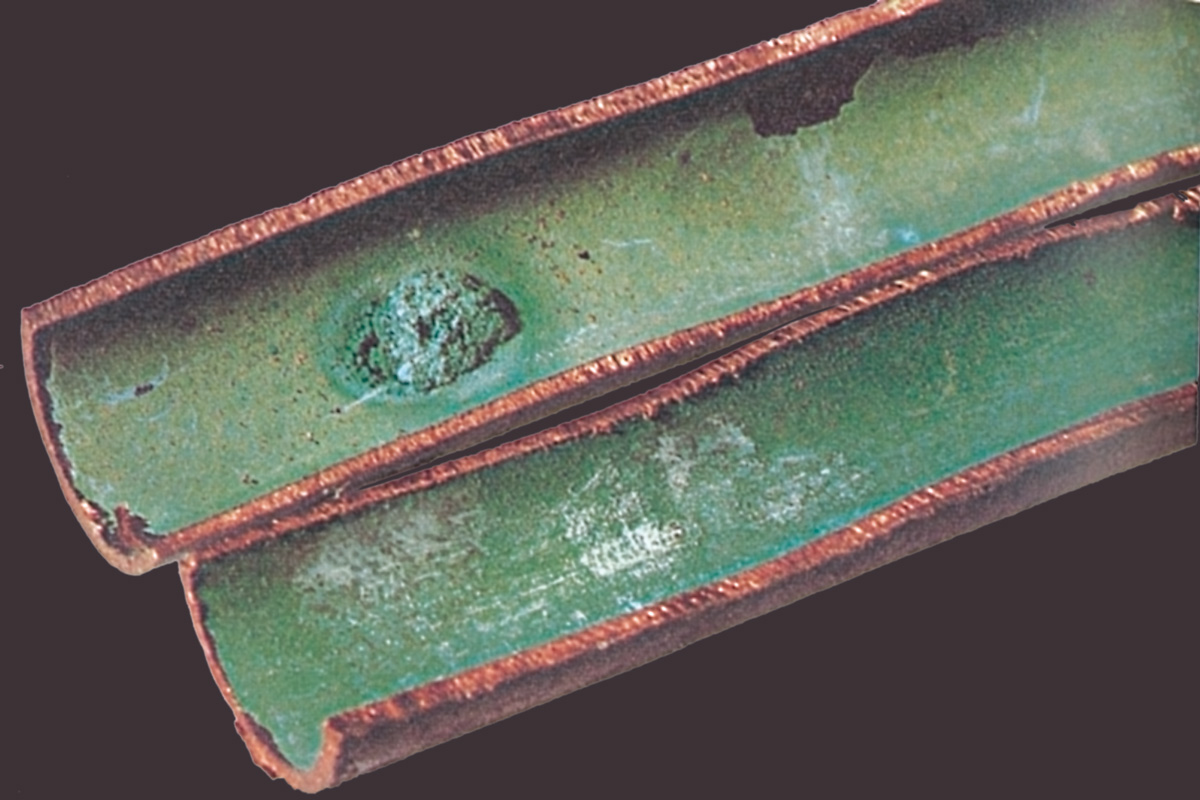
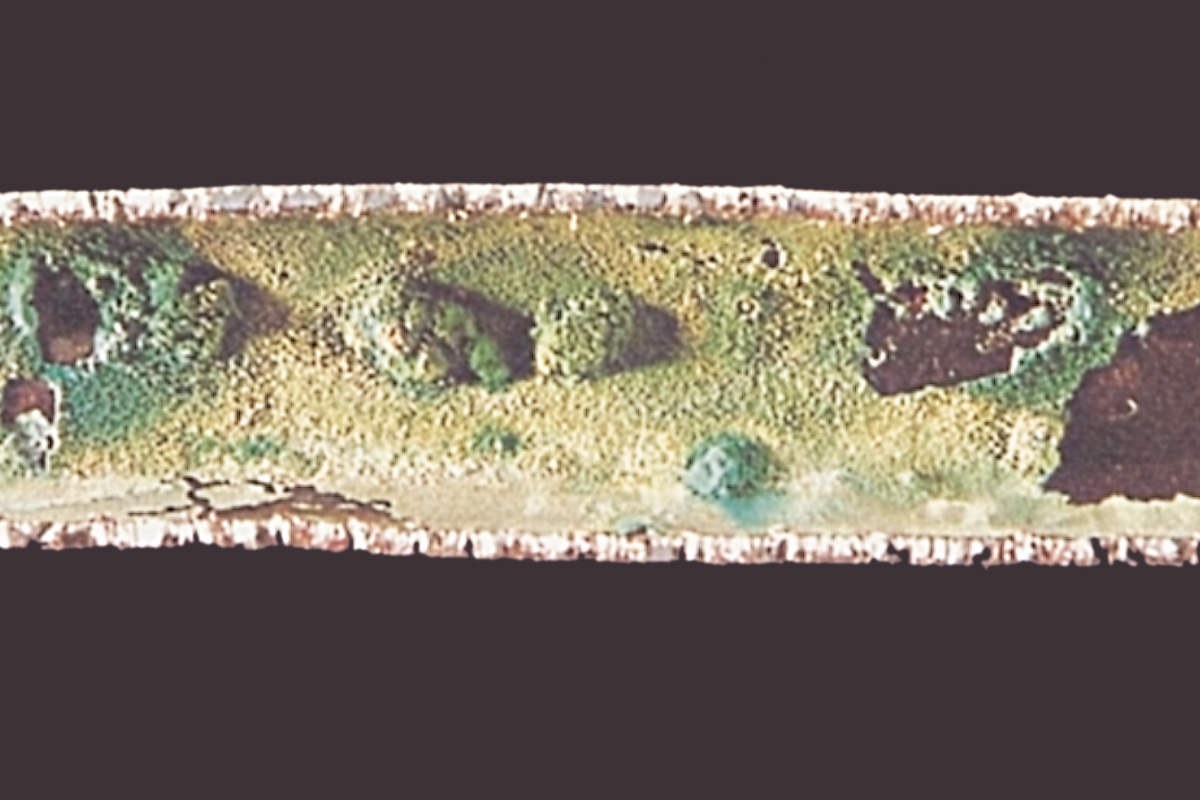
Why do pipes rust?
In water pipes made of galvanised iron pipes or copper, rust and/or limescale deposits inevitably form after around 10 to 15 years. There are many different reasons for this. There are more than 100 known reasons why pipes rust (mixed water, aggressive water quality, water ingress, poor pipe quality, high temperatures, etc.). Some of the reasons are
- At temperatures above 60°C, a protective layer no longer forms in galvanised steel pipes.
Impurities in the water, aggressive, acidic, hard water. - Flow velocities and turbulence are also important factors in corrosion processes.
- Pitting in copper pipes due to extraneous rust washed into the pipes in water with a high carbon dioxide or chloride content.
- The hardening agent lime precipitates and forms scale - not uncommon with carbonate hardness of more than approx. 20° .
- Blunt thread-cutting blades destroyed the structure in the pipe - the finest cracks were unprotected and corrosion began.
- Old thread-cutting oil was used during assembly - the zinc coating was chemically attacked.
Erosion corrosion due to sand washed in.
